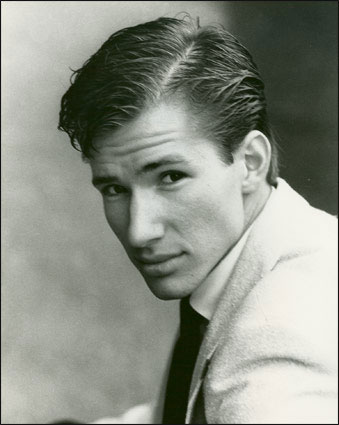The Good Eater
Ron Saxen
 The Good Eater by Ron Saxen, due to be published in March, is the true story of a male model’s struggle with binge eating. This is a problem more common among women, but this young man at a very early age found solace from his problems by eating, and as a result, always struggled with a weight problem.
The Good Eater by Ron Saxen, due to be published in March, is the true story of a male model’s struggle with binge eating. This is a problem more common among women, but this young man at a very early age found solace from his problems by eating, and as a result, always struggled with a weight problem.
Ron’s binge-eating roots, like most people with emotional problems, lay in his past. He was the third child of a very strict, tyrannical father and a mother who was a religious fanatic. He had two older brothers and two younger sisters.
His binge eating started at thirteen years old, when waiting for his father to come home and punish him for the wrongs of the day his mother had written down in her notebook, he began to eat the chocolate from the school sales he had stored in his closet. And he felt better immediately! From then on, to placate himself, he ate. Food gave him pleasure. He had learned that anything he could do to please his parents and maintain the “fragile” peace was a good thing. Winning food contests at the dinner table—finishing before everyone else—was one of those things that pleased his father and kept the peace, staving off the punishments and whippings. And he loved food!
At sixteen, his father left home; and since his two older brothers had moved out, he became the man of the house. He went on his first diet; but since his answer to every problem was eating, of course, he always returned to eating for comfort. He became obese, and for the next years struggled with his weight.
However, Ron was very good looking, and in 1984, at the low end of his yo-yo dieting (260- 225), he was asked a number of times if he was a model. He was twenty-one years old. Encouraged to try modeling, he lost enough weight to qualify as a model. He tried out and was very successful, until confronted with a problem and returned to binge eating to solve it, or at least to make himself feel better. He put the weight on again and gave up modeling. He tried being a comedian, writing acts and performing them on stage. Eventually, failing at that, having now received his college degree, he tried the Marine Corps’ Officers Candidacy School. He hoped that being a Marine would magically erase his past and solve all of his problems. When this failed, he tried selling insurance, then using drugs . . .one attempt after another to control his eating and thus his weight.
225), he was asked a number of times if he was a model. He was twenty-one years old. Encouraged to try modeling, he lost enough weight to qualify as a model. He tried out and was very successful, until confronted with a problem and returned to binge eating to solve it, or at least to make himself feel better. He put the weight on again and gave up modeling. He tried being a comedian, writing acts and performing them on stage. Eventually, failing at that, having now received his college degree, he tried the Marine Corps’ Officers Candidacy School. He hoped that being a Marine would magically erase his past and solve all of his problems. When this failed, he tried selling insurance, then using drugs . . .one attempt after another to control his eating and thus his weight.
See how, with some lifestyle changes and the help of friends, Ron finally, years later, gets his eating under control, and as a result, his life. This memoir, at times light and funny, at others dark and sad, reads like a novel, with a plot whose conflict I kept wanting to be resolved happily for Ron so that he could stop bingeing and keep his weight under control in order to get back to his modeling. You, too, will find it interesting and moving.
The following is from the National Institute of Diabetes and Digestive and Kidney Diseases (http://www.athealth.com/Consumer/disorders/Bingeeating.html):
Although it has only recently been recognized as a distinct condition, binge eating disorder is probably the most common eating disorder. Most people with binge eating disorder are obese (more than 20 percent above a healthy body weight), but normal-weight people also can be affected. Binge eating disorder probably affects 2 percent of all adults, or about 1 million to 2 million Americans. Among mildly obese people in self-help or commercial weight loss programs, 10 to 15 percent have binge eating disorder. The disorder is even more common in those with severe obesity.
Binge eating disorder is slightly more common in women, with three women affected for every two men. The disorder affects blacks as often as whites; its frequency in other ethnic groups is not yet known. Obese people with binge eating disorder often became overweight at a younger age than those without the disorder. They also may have more frequent episodes of losing and regaining weight (yo-yo dieting).
If you think you might have a problem with BED, there are many programs to help you. You can find help first by simply doing a search on the Internet to learn just how serious is your eating problem and get help early, unlike Ron, who took twenty-one years of trying to solve his own problem alone before he got help. Recognizing he had a serious problem, as he tried one thing after another only to fail again, I kept screaming at him: Get some professional help!
You may visit Ron Saxen online at www.ronsaxen.com.
Reviewed by Lee L. Peoples